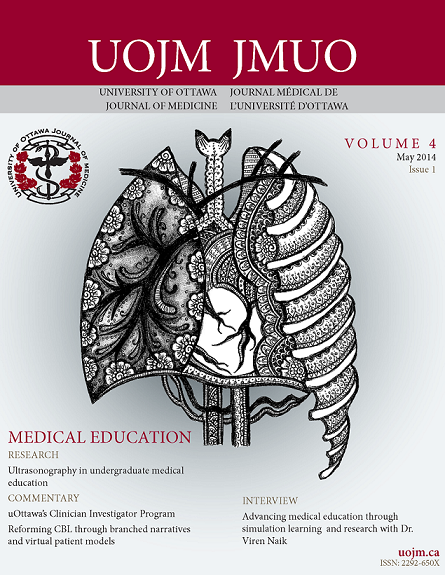Neglecting the null: the pitfalls of underreporting negative results in preclinical research
DOI:
https://doi.org/10.18192/uojm.v4i1.1036Keywords:
Publication bias, Underreporting, Negative results, Null results, Positive outcome reporting, Journalology, Pre¬clinical research, Reporting guidelines, Peer-review, Scientific misconductAbstract
ABSTRACT
Heightened competition for funding and increased pressure to publish in high-impact journals has led to a modern-day publication culture that favours positive results. The underreporting of negative, or null, results is a form of publication bias that occurs when researchers and/or reviewers fail to communicate findings due to unfavourable directionality or perceived unimportance. For nearly three decades, recognition of this bias in clinical research has led to revised policies and guidelines in an effort to improve reporting transparency and accuracy. Only recently has the existence of this reporting bias been fully appreciated as a formidable problem in preclinical research. Considering that preclinical research provides the foundation on which many clinical trials are conceived, finding solutions to increase the reporting accuracy of preclinical studies is of paramount importance. In this commentary, we will explore how the underreporting of negative results in preclinical research distorts scientific knowledge and subsequently misguides clinical research. We will conclude with several suggestions for reducing this bias with the intention of transitioning towards a truly transparent and objective publishing landscape.
Downloads
Published
Issue
Section
License
- Authors publishing in the UOJM retain copyright of their articles, including all the drafts and the final published version in the journal.
- While UOJM does not retain any rights to the articles submitted, by agreeing to publish in UOJM, authors are granting the journal right of first publication and distribution rights of their articles.
- Authors are free to submit their works to other publications, including journals, institutional repositories or books, with an acknowledgment of its initial publication in UOJM.
- Copies of UOJM are distributed both in print and online, and all materials will be publicly available online. The journal holds no legal responsibility as to how these materials will be used by the public.
- Please ensure that all authors, co-authors and investigators have read and agree to these terms.
- Works are licensed under a Creative Commons Attribution-NonCommercial-NoDerivatives 4.0 International License.


